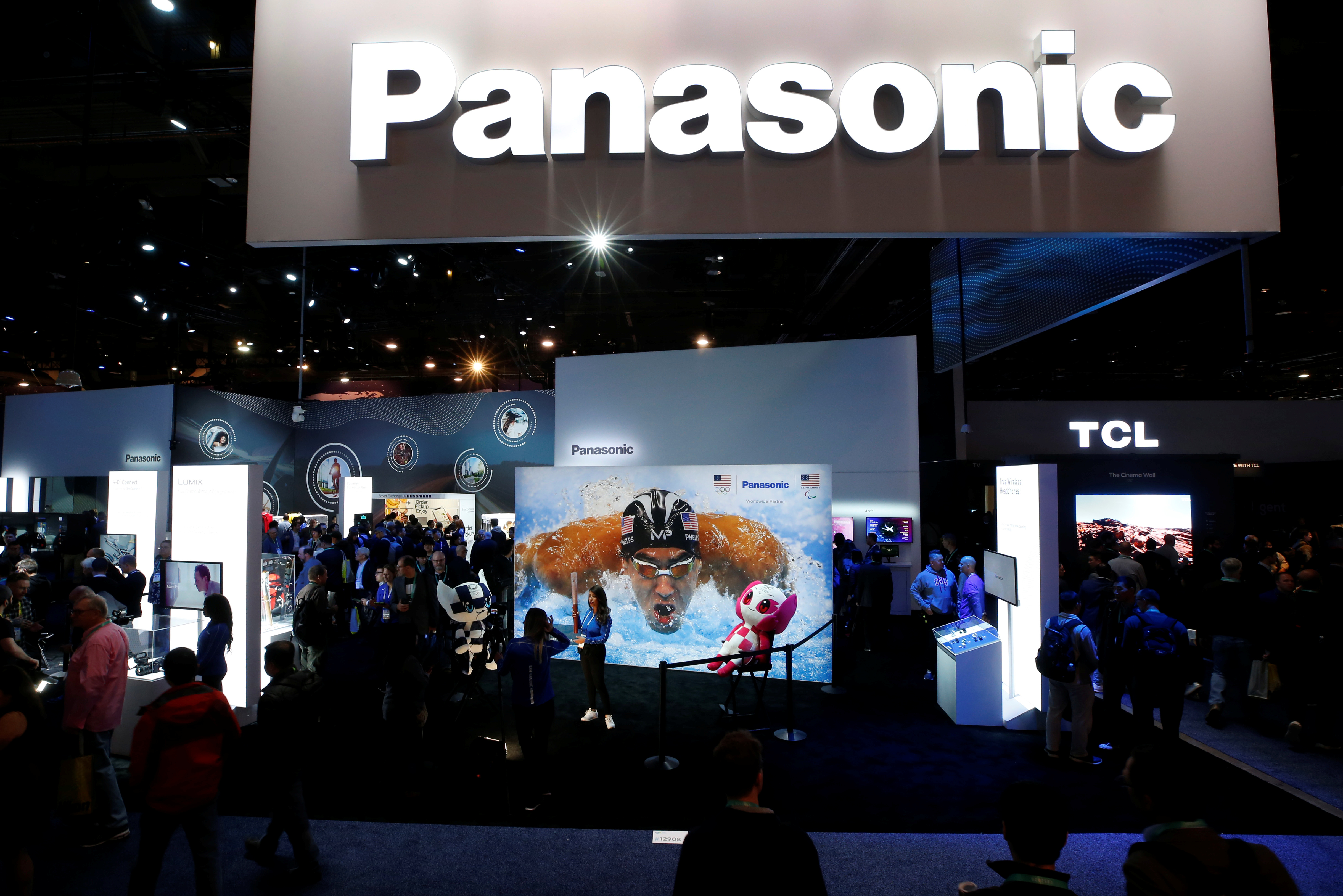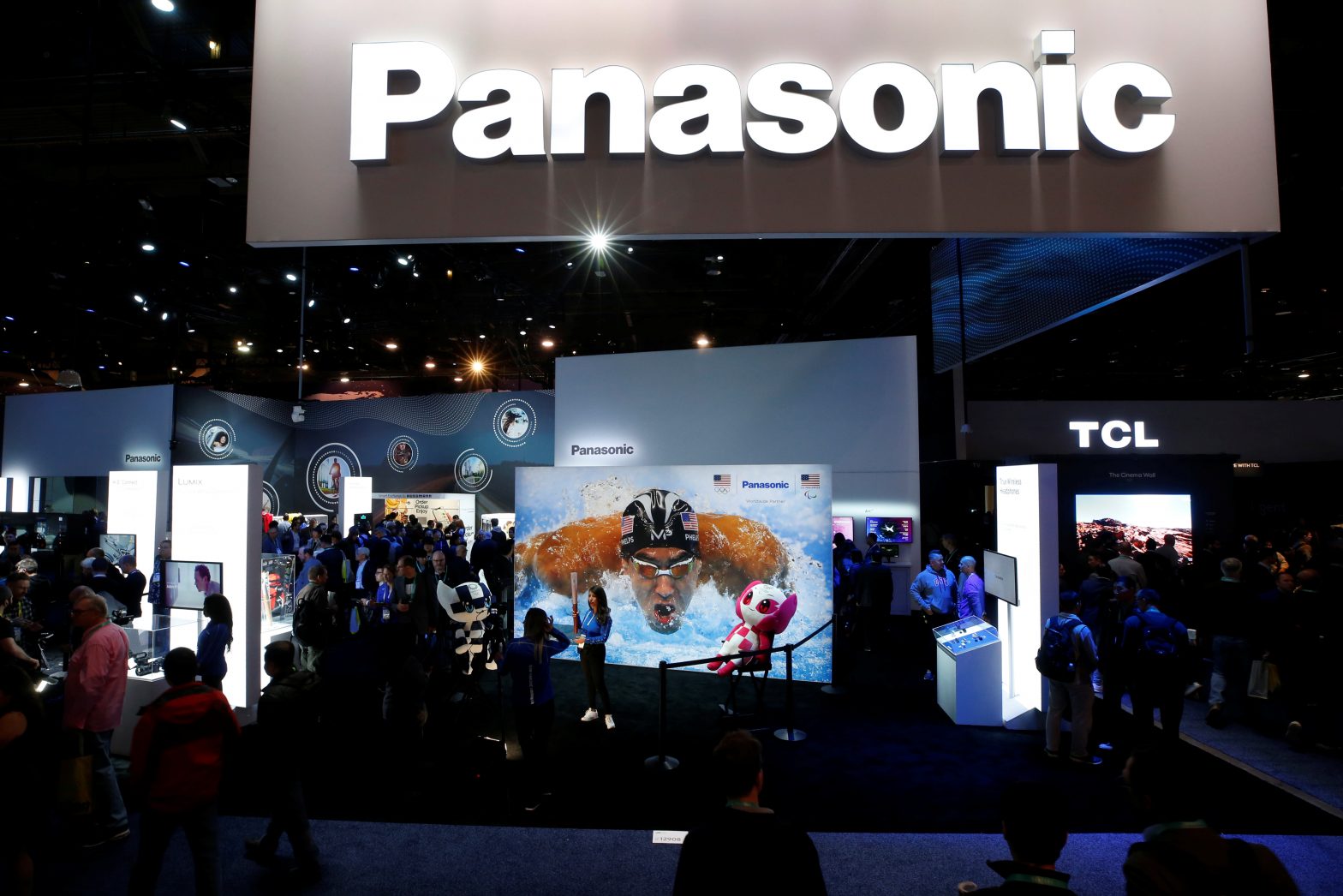
The Panasonic booth is shown during the 2020 CES in Las Vegas, Nevada, U.S. January 7, 2020. REUTERS/Steve Marcus/File Photo Acquire Licensing Rights
TOKYO, Oct 30 (Reuters) – Panasonic Holdings (6752.T), which supplies Tesla (TSLA.O), said on Monday it had cut automotive battery production in Japan in the September quarter and shrank the division’s annual profit forecast by 15%, underscoring a global slowdown in EV sales.
The company’s less positive outlook for its battery segment follows similar warnings by several automakers and suppliers, as major economies, including China and Europe, see weaker growth.
Panasonic lowered its full-year operating profit forecast for the energy unit that makes batteries for Tesla (TSLA.O) and other automakers to 115 billion yen ($769 million) from 135 billion yen.
The company adjusted automotive battery production in Japan in the three months to end-September to meet an “appropriate inventory level, in response to rapidly-reduced demand”, it said in presentation materials posted on its website.
Panasonic’s group chief financial officer is set to hold a briefing on the second-quarter earnings from 0900 GMT on Monday.
The battery unit’s production in Japan suffered from slowing uptake for high-end EVs in North America, Panasonic said in the presentation material, as the U.S. Inflation Reduction Act spurred demand changes among consumers.
Panasonic added its production at its North American operations remained steady, and it saw firm sales of vehicles eligible for tax credits.
South Korean battery firm LG Energy Solution (373220.KS) last week warned of slowing revenue growth in 2024 due to global economic uncertainties affecting the outlook for EV sales.
Also this month, Tesla took a cautious stance on expanding EV production capacity, with CEO Elon Musk saying he was worried that higher borrowing costs would prevent potential customers from affording its vehicles despite price cuts.
General Motors (GM.N) is also slowing the launch of several EV models to cut their costs, and pulling back on EV product spending.
($1 = 149.5400 yen)
Reporting by Daniel Leussink; Editing by Kim Coghill and Miral Fahmy
Our Standards: The Thomson Reuters Trust Principles.
